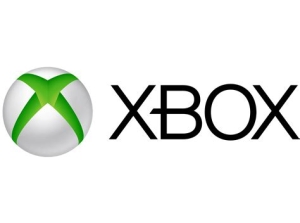Displaying items by tag: FTC
Judge Says that the FTC did not Show Potential for Harm in their Request for a Preliminary Injunction
It seems the Judge in the case involving the FTC, Microsoft and Activision Blizzard thinks that the FTC failed to reach a sufficient threshold to prove harm in a request for a preliminary injunction. To some this is cause for celebration although most people who have followed Microsoft’s history of anti-competitive behavior, in any market they play in, will know this is not a good thing. What makes this decision even more suspect is the fact that the judge precising over the case, U.S. District Judge Jacqueline Scott Corley, has a direct family member working at Microsoft.
Microsoft’s Cloud Feature Runs at a Loss According to Testimony to FTC
So, it seems that under direct questioning Microsoft has been forced to admit that cloud gaming is not as big of a deal as they have been saying it is. We have long held that their generous 10-year cloud licensing deal for cloud gaming was not an honest attempt at competition. After all cloud gaming represents a little less than 1% of the total gaming market. Now Sarah Bond has admitted that it is not a popular option and that it is most commonly used as a feature for Microsoft consoles.
Why the Microsoft Activision Blizzard Deal is such a Big Deal
Unless you have been living under a rock or just do not care about gaming at all, you have probably heard a lot about the Microsoft Activision merger/acquisition. The deal, one of the largest in history, is a monster. Microsoft wants to buy, lock, stock and barrel, the Activision Blizzard game development company for a whopping $68.7 Billion (with a “b”). The deal would give Microsoft complete control over everything Activision/Blizzard. Now for some this might not be a bad thing if you look at it from just a game perspective or if you are just a PC gamer. The problem comes when you get into how games are really developed and how game developers work with component and console makers to ensure their games work properly.
FTC Changes the Focus from Cloud to Xbox Vs PlayStation in Microsoft Activision Blizzard Deal (as it should be)
In our coverage of the Microsoft Activision/Blizzard deal we have often wondered why so many of the groups that approved the deal, and one that opposed it, focused only on cloud gaming. We saw the UK say that the deal was bad for cloud gaming while others stated that a 10-year licensing deal for cloud gaming services that Microsoft agreed to made everything all better. As we looked over the approvals and oppositions this odd focus on what represents less than 1% of the gaming market seemed so out of place that started to feel that the opposition was just a token resistance and the deal (which is a bad thing) was just going to get rubber stamped.
The Microsoft Activision Blizzard Deal, Let’s Talk about the Elephant in the Room
Microsoft’s $69 Billion wish list includes the acquisition of Activision Blizzard and all the goodies that it controls. This deal has been called the largest in gaming history and it should be. It involves a massive amount of money, and a large stockpile of AAA gaming IP. It would all be under Microsoft’s control. The deal has been approved by 37 different agencies (including the EU) and has two notable hold outs; the US FTC and the UK’s CMA. Microsoft has appealed the UK regulator’s move to block the deal while the FTC case is not set to be heard until August.
UK’s CMA Adds Salt to the Wound After Blocking Microsoft Activision Blizzard Deal
The UK’s CMA (Competition and Markets Authority has added new restrictions on Microsoft and Activision Blizzard after already issuing a formal anti-trust warning over the deal back in January. Now the regulator has added additional orders that prevent either party from “acquiring an interest” in each other without written permission from the CMA.
Microsoft’s Activision Blizzard Deal to be Reviewed by the FTC
Yesterday we talked about Microsoft’s plans to buy Activision Blizard as well as Sony’ plans to buy Bungie. We covered what these could mean in terms of content control and splitting console ownership into what titles people like. Although both Microsoft and Sony are committed to releasing content for both consoles, once the existing contracts run out, things could be very different. Because of this potential monopoly of content by the Activision Blizzard deal, the FTC is going to take look at it.
Apple faces FTC investigation into Beats Streaming Service.
Remember that pesky anti-trust suit that Apple faced over fixing eBook prices with publishers? Well if not, let me remind you. When Apple brought their eBook store to iOS they knew they were facing an uphill battle against Amazon. To counter this they worked out a deal with several publishers to fix prices at a certain level and also to guarantee that they got the best prices along with a few exclusive books. They were found guilty of this and are supposed to be making amends for it along with having a watchdog looking over their shoulders.
Facebook's acquisition of WhatsApp approved by the FTC
The U.S. Federal Trade Commission approved Facebook's acquisition of WhatsApp, which was announced in February. Before finalizing the transaction, companies will have to wait for approvals from other international regulators in countries where both companies operate. However, the FTC's approval did not come without warning and instructions related to the issue that stood out as the most contentious - the protection of user data.
New Facebook Policies Spark FTC Inquiry
 |
Facebook is a company that we all love to hate and is one that none of us seem to be able to get away from. Much like Google Facebook has become so big that they feel they can do what they want with impunity; at least in regards to their users’ data. Over the last few years Facebook has come under fire for a number of things they have done with user information and even things they publicly said they wanted to do with user information. The latest one involves their attempts to use your information including picture, name, and other identifying information for… well anything they want.








